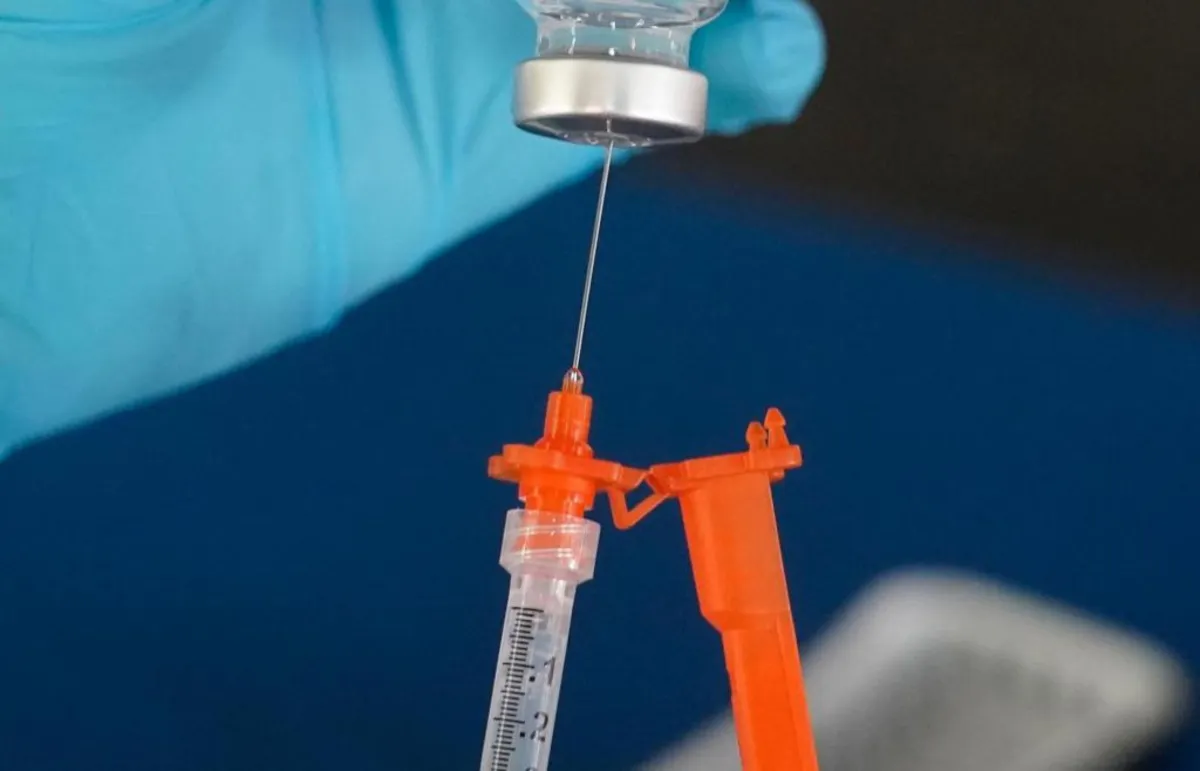
As COVID-19 cases surge across California, reaching levels not witnessed since last year, the approaching fall respiratory virus season raises concerns about limited access to vaccines. While the virus is no longer the overwhelming threat it posed five years ago—when it triggered a global pandemic, resulted in over a million U.S. deaths, and prompted government-imposed mask mandates and gathering restrictions—current variants continue to cause discomfort and health risks, particularly among vulnerable populations.
According to an August survey conducted by the Kaiser Family Foundation, approximately 60% of Americans show little or no interest in receiving a COVID-19 vaccine. This decline in demand poses a significant challenge as officials strive to ensure public health safety. Despite the waning interest, the disease still poses heightened risks for seniors and younger individuals with preexisting health conditions, emphasizing the importance of vaccination.
Many individuals eager to receive the vaccine face conflicting recommendations from federal and state health officials. John Swartzberg, a clinical professor of infectious diseases and vaccinology at UC Berkeley, remarked, “Never has our population been more confused than now.” The U.S. Food and Drug Administration (FDA) recently approved new COVID-19 shots for the 2025-2026 season, but access has been limited to seniors and younger individuals with specific high-risk medical conditions, such as cancer or obesity.
On September 18, the Centers for Disease Control and Prevention (CDC) advisory panel will review vaccine eligibility recommendations. Earlier this year, U.S. Health Secretary Robert F. Kennedy, Jr. replaced the entire CDC panel with members who have expressed skepticism about the safety of commonly used vaccines. This change has led to uncertainty regarding insurance coverage and vaccine accessibility.
Elissa Harrington, a spokesperson for Kaiser Permanente, stated that the largest insurer in California is currently reviewing the FDA’s guidelines and awaiting the CDC’s recommendations. “Kaiser Permanente is committed to making the 2025-26 COVID vaccine available at no cost to children and adults for protection from severe illness from COVID,” she said. Access to this coverage will be crucial, according to Andrew Noymer, a professor of population health and disease prevention at UC Irvine, who emphasized that many people may hesitate to get vaccinated without insurance coverage.
Currently, seniors and younger adults with qualifying medical conditions can receive the vaccine at pharmacies like CVS and Walgreens. However, for healthy individuals outside these categories, a doctor’s prescription is required, and the criteria for obtaining such a prescription remain unclear. Without insurance, the out-of-pocket cost for a vaccine can exceed $150, creating another obstacle for potential recipients.
To further complicate the situation, California Governor Gavin Newsom has announced the state's intention to develop its own "science-based" immunization recommendations in collaboration with other West Coast states. This move aims to provide broader access to the COVID-19 vaccine than what the FDA currently allows, citing guidelines from reputable medical organizations such as the American Academy of Pediatrics and the American College of Obstetricians and Gynecologists.
The state’s proactive stance comes during a summer surge in COVID-19 cases, particularly in the Bay Area, where wastewater analyses indicate high concentrations of the virus. While the current wave is significantly milder than previous peaks of the pandemic, officials report rising hospitalizations, with numbers increasing from 17 in June to 73 by mid-August in Alameda County.
Health officials stress the importance of vaccination, especially for seniors, very young children, and individuals with high-risk conditions. Masking in crowded indoor spaces and staying informed about vaccine availability are strongly recommended. According to the CDC, vaccination remains the most effective measure to prevent severe illness from COVID-19. “Getting vaccinated continues to be the best way to protect yourself from COVID and other serious illnesses,” a spokesperson for the Santa Clara County public health department stated.
The success of California's West Coast vaccine partnership with Washington, Oregon, and Hawaii will depend significantly on ensuring that insurers continue to cover the COVID-19 vaccine for the general public. Experts, including Noymer, express hope that insurers might voluntarily choose to cover the vaccine without external pressure. However, it remains uncertain whether Governor Newsom is considering this aspect in his plans. A spokesperson for the governor's office referred inquiries to the California Department of Public Health, which is currently finalizing plans to enhance public access to vaccines.
As California navigates these complex challenges, the ongoing collaboration among West Coast states may play a pivotal role in improving vaccine access and public health outcomes in the face of rising COVID-19 cases.